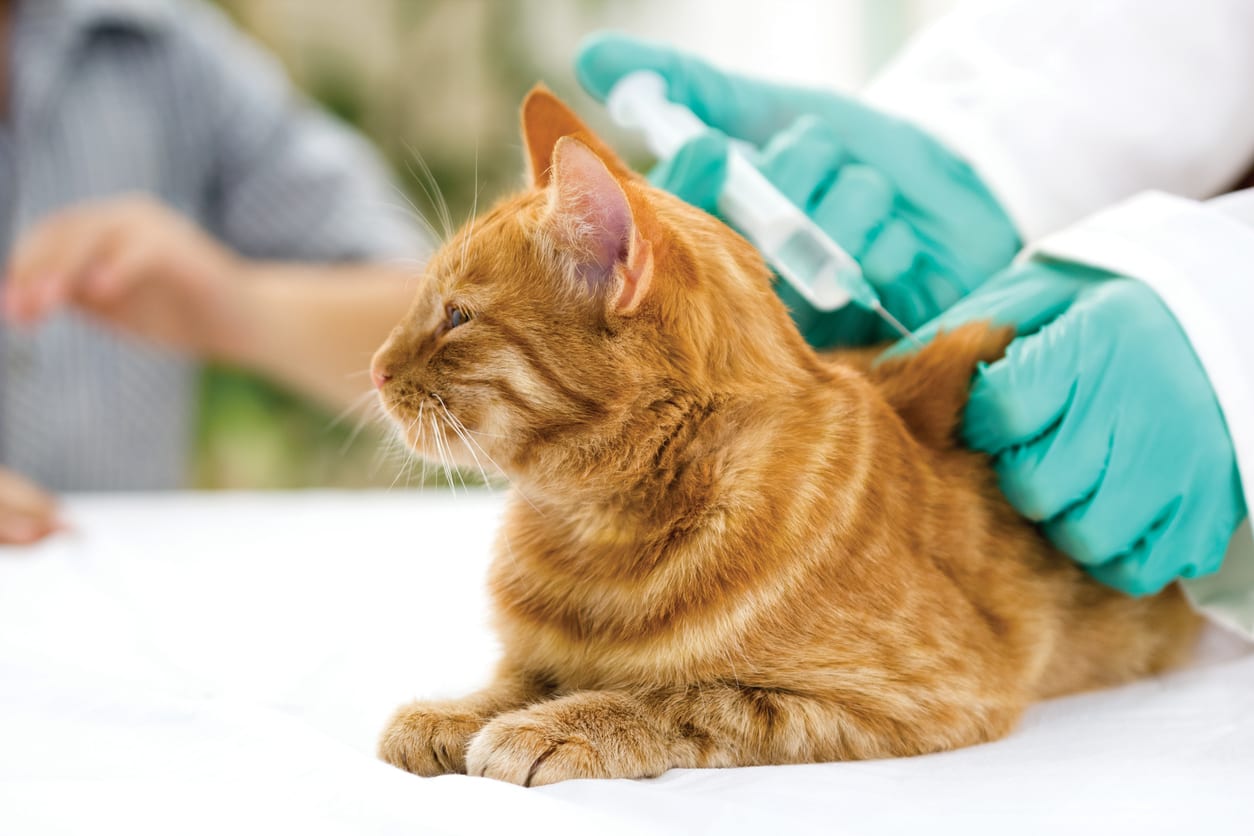Cat and Dog Vaccinations in Oakland, CA
Preventing the Spread of Canine Flu in Oakland, CA
Canine flu is a highly infectious illness that causes flu-like symptoms such as lethargy, coughing, sneezing, and fever. The disease spreads easily from dog to dog, between shared items such as water bowls or toys, as well as on human hands and clothing. Most mild cases can be treated with rest at home, yet pets who are vulnerable (very young or very old dogs, or those with existing medical conditions) could develop more severe cases that can threaten their well-being. If your dog lives with or near other dogs and regularly visits the groomer, dog park and/or daycare, we recommend having them vaccinated with our bivalent canine flu vaccine which protects against both flu strains, H3N2 and H3N8.
Please contact us by calling (510) 339-2041 for more information regarding canine flu or our vaccine.
Cat and Dog Vaccinations Your Pet Needs
Cat and dog vaccinations protect pets from viral and bacterial diseases. Vaccination protocols vary depending on species, age, and lifestyle and are tailored to your pet’s individual needs. Thornhill Pet Hospital's vaccines recommendations are based on the recommendations of the AAHA-AVMA Preventive HealthCare Guidelines Task Force and are detailed below for both dogs and cats:

Core Dog Vaccines:
The DHPP vaccine protects your puppy or dog against several diseases, including:
- Distemper: a life-threatening disease that is hard to treat and extremely contagious
- Hepatitis (infectious): viral disease that is very contagious and causes liver failure and ocular damage
- Para influenza: a disease of the respiratory system
- Parvovirus: a highly contagious and often fatal virus that can remain in the environment for more than a year
- Rabies: an incurable virus that affects the central nervous system. Most cities in the United States require regular rabies vaccination to protect both dogs and people.
Non-Core Dog Vaccines:
- Canine Cough (formerly called kennel cough): spread through coughing. Dogs can be infected just by being close to an infected dog. However, there is an increased risk in boarding facilities, grooming establishments, veterinary clinics, and dog shows. The vaccine is given either every 6 months or every 12 months depending on your dog's lifestyle.
- Leptospirosis: bacterial disease that affects the kidneys and the liver. The Leptospira bacteria is found in puddles of water or wet grass that have been contaminated by infected dogs or wildlife. The bacteria can also be spread by infected sea mammals and can affect dogs that go to our beaches. Leptospirosis is a human health hazard as well because it is transmitted to humans by contact with the urine of an infected dog or other mammal.
- Canine Flu (canine influenza): Canine flu can spread quickly among dogs, especially at dog parks, daycare centers, and boarding facilities. If your dog frequents these places or lives in close proximity to other dogs, be sure to ask us about our canine flu vaccine and whether your dog is at risk.
- Lyme Disease: spread by ticks to dogs and people. It is recommended for dogs that visit areas where ticks are found, including the trails and parks in Oakland and surrounding areas.
Cat Vaccines:
Dr. Yang recommends FVRCP vaccination for all cats (indoor/outdoor and indoor only). This vaccine protects cats from several viral diseases, including:
- Rhinotracheitis and Calicivirus: both cause upper respiratory tract infection
- Feline Panleukopenia: often called feline distemper. This disease is hard to treat and often fatal. Symptoms include vomiting, lethargy, severe dehydration and fever. This vaccine is an effective way to protect your cat from this disease.
Vaccinations for cats that go outside:
- Feline Leukemia Virus Vaccine: Feline leukemia is the leading cause of death for cats in North America. Dr. Yang recommends this vaccine for all cats that go outdoors. If your cat has never received this vaccine, a series of two vaccinations are administered 2-4 weeks apart, and then boosted on an annual basis. If your cat has been outside and not vaccinated, a Feline Leukemia and a Feline Immuno suppressive virus test (done in house) is recommended before vaccinations are administered.
- Rabies Vaccine: transmitted by wild animals that have been infected with the virus. Rabies is always fatal. In our animal hospital at this time, we us Purevax Feline Rabies by Merial. This vaccine is not adjuvanated for increased safety.
When your pet comes in to receive their cat or dog vaccinations, we’ll discuss their specific lifestyle and medical requirements with you to ensure that they’re receiving the protection they need. If you have any questions about cat and dog vaccines or if you’d like to schedule an appointment to have your pet vaccinated, we invite you to give us a call at (510) 339-2041.

